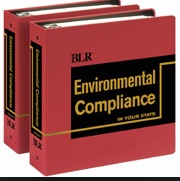The Myth of the Costs of Environmental Regulation on Businesses
The world’s climate is collapsing on all of us, and the disastrous consequences are unfolding faster than we expected, and all businesses can complain about is the annoying costs of regulation on their bottom lines. PricewaterhouseCoopers (PwC), in its annual global survey of business leaders, has even stopped including “concern about climate change” as an option because only 10% of leaders listed it at all last year.
What does bother 1,322 business leaders, above everything else in the world, is “overregulation,” with 78% saying it threatens their organisation’s growth prospects, a/k/a profits. The level of concern is the highest ever seen in the survey, and highest in Argentina (98%), Venezuela (96%), the US (90%), Germany (90%), the UK (87%) and China (85%). The head of JPMorgan Chase bank recently bitterly complained that banks were “under assault” from regulations. The statement evoked outrage in many quarters, and he tried to backtrack. When the world still suffers from an economic crisis, for which the global banking system bears part of the blame, such whining is childish.
What is disturbing in the European Union environmental context is that such complaints have become increasingly strident from the European Commission (EC), and the business community it seems to be supporting these days. The EC mantra is life will survive only if we have growth and jobs, and only less governmental regulation, including in environmental matters, will let companies grow. The link between growth and jobs remains elusive.
Measuring the economic impact of environmental regulations on businesses is complicated and needs more data development and analysis, but the studies that have been done consistently support the finding that the estimated effects are negligible. As reported in a recent article in The Economist, studies of individual laws, such as the US Clean Air Act, have found that these laws have little impact on the growth of businesses.
In 2003, George W. Bush’s Office of Management and Budget issued a report that summarized the cost and benefits from 1992 to 2002 of the most significant 107 regulatory rules implemented by eight main federal agencies. The benefits of these regulations are from $147 to $231 billion versus $37 to $43 billion in costs. For the EPA, the costs ranged from $23 to 26 billion, with benefits worth from $120 to 193 billion. The net benefits to society are huge, and traditional cost-benefit techniques are notorious for underestimating social and environmental benefits.
A recent publication by the Organisation for Economic Cooperation and Development (OECD) reviewed the result of earlier studies of the effects of environmental polices on businesses, indicating that there were various limitations in many studies but also reporting that they generally showed a negative, insignificant, or sometimes even positive effect on productivity growth. To address the shortcomings of the earlier, more limited studies, the OECD study looked at 24 OECD countries over the period from 1990 – 2012. Using a measure of the environmental policy stringency, developed by OECD, it assessed the effects of environmental policy on productivity growth at the country, industry and firm levels. As the report concludes, “The bottom line result is that, overall, an increase in stringency of environmental policies does not harm productivity growth or productivity levels – neither at the level of the entire economy nor at that of manufacturing industries. In fact, a tightening in environmental policy stringency is associated with a subsequent short run increase in productivity growth, for the economy as a whole and in particular for the most productive industries and firms.” At 31. Some less productive firms experienced a negative effect on productivity growth in the short run.” At 7. Businesses cannot find any comfort even in this last result because if they truly believe in the free market economy, isn’t it expected that less productive firms do, even deserve, to suffer from changes, including regulations.
As a footnote, it can be added that the OECD found that Greece and Ireland had the least stringent environmental policies among the 24 countries studied.
While businesses, and their supporters in the EC, continue to complain, without evidence, about environmental regulations from the government, they seem quite satisfied with the wide-spread and deep subsidies that many help themselves to at the EU trough. One study estimated that in 1996, US government subsidies and tax breaks to corporations outpaced all the federal money spent on programs for the poor, including welfare, food stamps, housing subsides, and student aid. See Amy.
Any further studies of the costs of environmental regulations should include any offsets from subsidies.
Sources
Jo Confino, “How concerned are CEOs about climate change? Not at all,” The Guardian (20 Jan 2015). www.theguardian.com/sustainable-business/2015/jan/20/global-warming-business-risks-government-regulation-taxes
Tom DiChristopher, “Don’t invest in banks if you want certainty: Dimon,” CNBC (21 Jan 2015). www.cnbc.com/id/102355946#.
“Green tape: Environmental regulations may not cost as much as governments and businesses fear,” The Economist (3 Jan 2015). www.economist.com/node/21637411/print
Silvia Albrizio, Tomasz Koźluk and Vera Zipperer, “Empirical Evidence on the Effects of Environmental Policy Stringency on Productivity Growth,” OECD (4 Dec 2014). www.oecd-ilibrary.org/docserver/download/5jxrjnb36b40.pdf?expires=1422386005&id=id&accname=guest&checksum=7D1D6A5898201BB1DEBE478F41F1B103
Douglas J. Amy, “How Government is Good for Business,” Government Is Good www.governmentisgood.com/articles.php?aid=21&p=1




No comments yet, add your own below